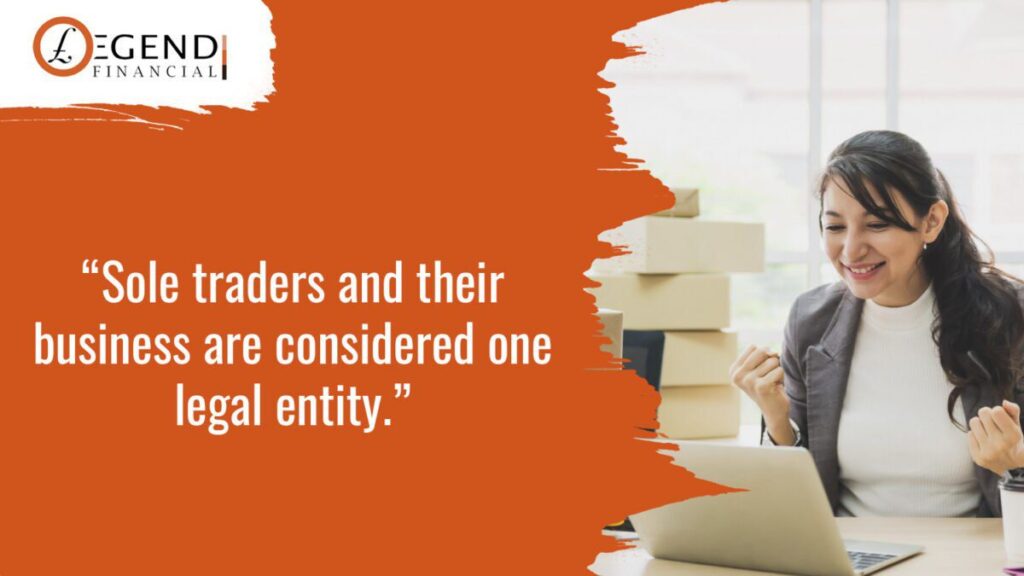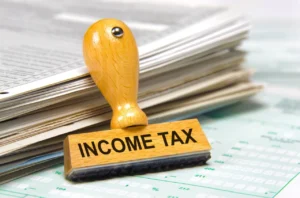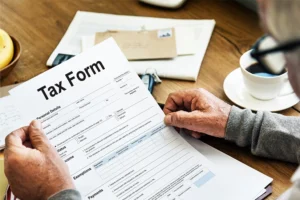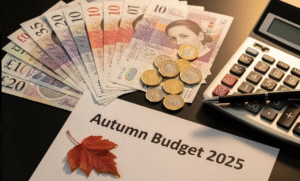Contents
In the UK, there are currently 50 per cent of self-employed individuals running their sole trader business, enjoying the freedom and autonomy that sole proprietorship allows. Most of these solopreneurs don’t even have any employees at all.
This article will serve as a comprehensive guide for people operating under sole proprietorship amongst other business structures, as we discuss everything that being a sole trader entails, including its eligibility, registration process, pros and cons, responsibilities, and more.
What Is a Sole Trader?
A Sole trader is someone self-employed individuals who own and run their own businesses, with responsibilities referred to as unlimited liability. A self-employed person isn’t automatically considered a sole trader, only when they are registered as one.
Solely accountable for their personal assets or anything that goes wrong with their enterprise, they are basically one and the same with their trader business, and usually their bank accounts too, and can even designate it with their own names.

Many startup businesses or solopreneurs choose to be registered as a sole trader as it is one of the easiest business structures in the UK to begin with as opposed to limited companies with a lot of paperwork and legal responsibilities.
Individuals under sole proprietorship can be very flexible compared to limited companies, such that they can be self-employed and employed at the same time. For instance, they can work for an employer during the weekdays and operate their business during the weekends.
HMRC will automatically class an individual as a sole trader when they meet the following criteria:
- They are catering to several clients at the same time.
- They sell goods or services with a fix charge that they already agreed with their clients upfront.
- They get to choose when, where, and who they work with.
- They buy all the equipment needed to complete the work.
- They pay for the extra work (e.g., fixings) needed if the client disagrees with the output.
- They can hire or subcontract others out if they need help to accomplish the task and send payments using their invoice templates.
- They own the business and are personally responsible for its failure or success.
Moreover, HMRC helps individuals on self employment identify if they are to register under sole proprietorship or not via phone or online.
Who Is Eligible to Register as a Sole Trader?
Self-employed individuals might need to register or not as a sole trader with HMRC when they fit the abovementioned criteria. However, they are required to report to and register with HMRC under the sole trader structure when any of the following applies to them:
- Between 6 April 2021 to 5 April 2022, their total annual income cash flow exceeds £1,000.
- They need to have a confirmation statement that they are sole trader, such as to claim tax-free childcare.
- They want to make voluntary contributions for their Class 2 National Insurance so they can qualify for the benefits.
Even if they are already employed and are paying their income tax through the Pay As You Earn (PAYE) system, these apply to them nevertheless.
How Do I Register as A Sole Trader?
Once self-employed individuals are eligible to register as a sole trader, they will have to go through the process and pay tax instead through self-assessment return every year.
They may either pay for eCommerce VAT if their annual income exceeds the threshold, register under the construction industry scheme (CIS) if they are contractors or subcontractors, and consider their business name carefully.
Generally, sole trader or their accountant for online business go through the following process:
- Informing HMRC that they are under self employment and will transition to paying their taxes as a sole proprietor.
- Filling out HMRC’s registration form for self-assessment, whether by post or online.
- Activating their HMRC online account using their Unique Taxpayer Reference (UTR) and activation code which HMRC will send to their email address.
- Completing their yearly self-assessment tax returns, especially VAT returns, using the new platform Making Tax Digital for Income Tax Self-Assessment (MTD for ITSA).
HMRC will then be sending them reminders for their annual self-assessment responsibilities.
Advantages And Disadvantage of Being a Sole Trader
In some ways, sole proprietorship is more advantageous than limited liability companies. Their huge difference lies in the paperwork and how quickly they can start. With less paperwork needed at the setup and lenient record-keeping requirements, a sole trader can immediately start their operations. From setup to operation, a sole trader will only need to complete annual self-assessment tax return, including VAT returns.
Autonomy and privacy come with sole proprietorship as well. A sole trader has complete control of the business, even invoice templates. They make all decisions without having to consult their partners or shareholders. Their financial information is kept private, too, and they can use the same bank accounts for business and personal use, as opposed to limited companies’ financial records being easily accessed by the Companies House.

Depending on their circumstances, a sole trader can also take advantage of their trading allowance, which amounts to £1,000 every year. If they pay capital gains tax (CGT), they may also need and avail of CGT reliefs and other ways on how to avoid capital gains tax UK, which limited companies cannot. These reliefs can either reduce their tax dues or delay their payment schedules.
However, with unlimited liability, sole traders are personally responsible for all their business’ debts and losses, which means they can be at risk of selling their personal properties or using their personal credit card to pay off debts. This is one of the 7 reasons why accounting for eCommerce companies is challenging. Check this article out.
Another disadvantage is the structure’s less credibility and limited access to funds. Without protection for business and overall legal aspects, some organisations avoid working with any sole trader. Difficulty in obtaining investors and lenders can lead to slower growth.
Lastly, even with tax reliefs, sole proprietorship is less tax-efficient as a sole trader pays 20 to 45 per cent income tax, compared to limited companies’ rate of 19 per cent on corporation tax and eligibility for corporation tax relief, depending on their yearly income. Profits or losses are taxed regardless, no matter the amount sole traders withdraw from their bank accounts.
Responsibilities As a Sole Trader
Once a sole trader is registered with HMRC, they will pay taxes such as income tax, National Insurance contributions (NICs), Value Added Tax (VAT), and capital gains tax through annual self-assessment tax returns, depending on their overall profit for that tax year.
Sole traders or their accountants for eCommerce will need to keep accurate and updated records of all their sales, business expenses, and other business transactions and use these details to submit their self-assessment tax return by the deadline HMRC set. We discuss each tax’s rates further below:
Income Tax
The personal allowance (tax-free limit) given for the 2022/23 tax period is £12,570. Any amount earned above this threshold will be taxed. For the current tax year, tax rates go as follows:
- Profits between £12,571 and £50,270 are taxed at the basic income tax rate of 20 per cent.
- Profits between £50,271 and £150,000 are taxed at the higher income tax rate of 40 per cent.
- Profits exceeding £150,000 are taxed at the additional income tax rate of 45 per cent.
National Insurance
A sole trader will have to pay for two NICs—Class 2 and Class 4 National Insurance. For the 2022/23 tax year, they are taxed at £3.05 per week for Class 2 NIC when their annual income exceeds £6,515. On the other hand, those who earn between £9,569 and £50,270 within a year are taxed at 9 per cent. Sole proprietors with annual income over £50,270 are taxed at 2 per cent.
Value-Added Tax
If the sole trader’s annual income exceeds £85,000, they will have to register for VAT and pay for it. The standard rate for VAT for the 2022/23 tax year is 20 per cent, although the dues will vary according to what they sell. They can be charged at a reduced rate of 15 per cent, such as when they sell household fuel. If they sell children’s clothes, they will have zero rate VAT, which means they will not have to pay VAT at all even when they register for VAT.
Capital Gains Tax
The rate for capital gains tax varies and will depend on the sole trader’s sold items or properties and the overall amount of their annual income. If they sell residential properties, they are taxed either at 18 per cent or 28 per cent. All the other chargeable assets are charged at 10 per cent or 20 per cent.
How Legend Financial Can Help
References
What is Corporation Tax? Guide for small companies. (n.d.). Retrieved from Bytestart: https://www.bytestart.co.uk/what-is-corporation-tax
Sole Trader Tax. (15 October 2021). Retrieved from CPD Online: https://cpdonline.co.uk/knowledge-base/business/sole-trader-tax/
Sole trader or limited company: which is best for you? (n.d.). Retrieved from Free Agent: https://www.freeagent.com/guides/small-business/sole-trader-or-limited-company/
Sole trader vs limited company – Which is better? (n.d.). Retrieved from Tax Assist Accountants: https://www.taxassist.co.uk/resources/articles/sole-trader-vs-limited-company-which-is-better
Set up as a sole trader. (n.d.). Retrieved from GOV.UK: https://www.gov.uk/set-up-sole-trader
Do Sole Traders Pay Corporation Tax? (26 May 2021). Retrieved from Fresh Books: https://www.freshbooks.com/en-gb/hub/taxes/do-sole-traders-pay-corporation-tax
What taxes do small businesses pay? (n.d.). Retrieved from Unbiased: https://www.unbiased.co.uk/discover/tax-business/running-a-business/business-tax











